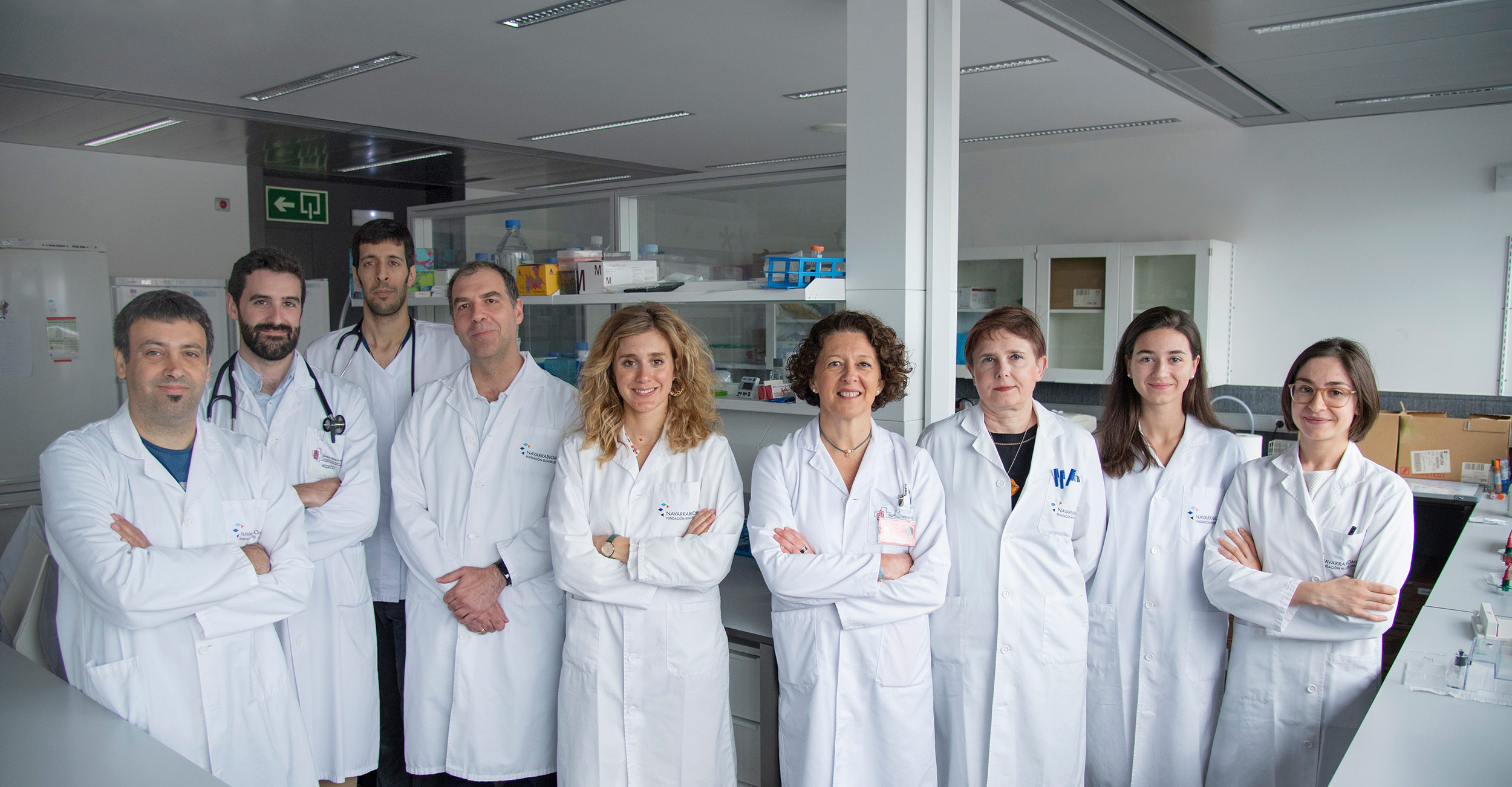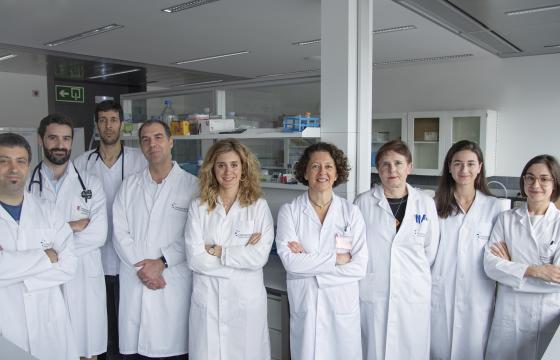
Navarrabiomed identifies mechanisms involved in the efficacy of lung cancer immunotherapy
The Immunomodulation Unit at the biomedical research centre Navarrabiomed, with the cooperation of the Medical Oncology Service from the Navarra Hospital Complex (CHN), has identified molecular properties in the immune system of lung cancer patients involved in clinical responses to immunotherapy based on PD-L1/PD-1 inhibitors. The study, published in EMBO Molecular Medicine, was made possible by the support of Asociación Española Contra el Cáncer (AECC) and Instituto de Salud Carlos III (ISCIII).
About 300 people are diagnosed annually with lung cancer in Navarra. 20 per cent of them get immunotherapy, a type of cancer treatment that helps the patient’s immune system fight cancer.
A study conducted by researchers at Navarrabiomed shows for the first time the significance of CD4 cells for the response to PD-L1/PD-1 blockade immunotherapy in lung cancer patients. The results of the study might help predict, examining the characteristics of the patient’s immune system, whether they are likely to respond to this type of treatment before treating them.
In addition, the study offers preliminary evidence for using new combination therapies that would improve the efficacy of PD-L1/PD-1 blockade immunotherapy in patients who, in principle, could not benefit from this type of immunotherapy.
It took three years to complete the research project, which was led by David Escors Murugarren and Grazyna Kochan, from the Immunomodulation Unit, and Ruth Vera García, Head of the Medical Oncology Service at CHN.
Moreover, the study is at the core of Miren Zuazo Ibarra’s MD dissertation. ‘Immunotherapies are regularly used in today’s clinical practice, but in a number of cases, the molecular mechanisms involved in the success or failure of a certain therapy are unknown. The results of our study will help more patients benefit from immunotherapy,’ says the young scientist, acknowledging oncologist Hugo Arasanz Esteban and graduate student María Jesús García Granda for their contributions.
At present, the team are also working on melanoma and head and neck cancer. They are also planning to extend the translational investigation to patients treated with immunotherapy as first-line treatment.
The recently published paper forms part of the scientific production of the Navarra Medical Research Institute (IdiSNA), the institution both CHN and Navarrabiomed belong to.


